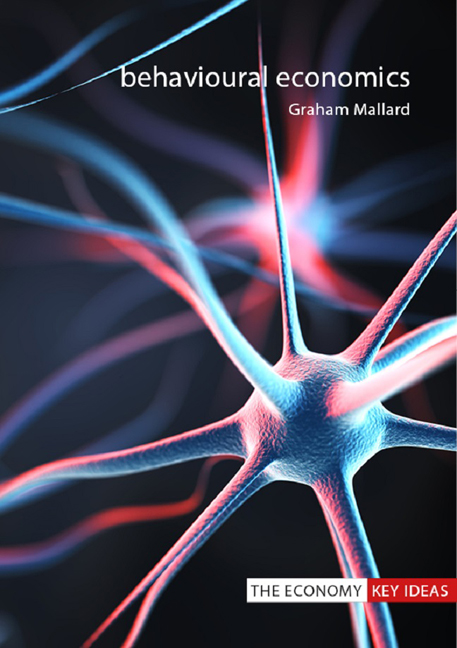7 - Reflections
Published online by Cambridge University Press: 09 August 2023
Summary
The emergence of behavioural economics as a field in its own right, over the past 35 years, has fundamentally changed both economics as a subject and the nature of policy-making. Adopting the empiricist approach, behavioural economics has started the process of returning modern economics to the form it took in the eighteenth century. This has not been without critique or contention, however. The purpose of this chapter is to offer a number of reflections – certainly not an exhaustive discussion – about what behavioural economics has already achieved and its future.
Competition, high stakes and experience
Findings have been presented throughout this book that show we do not always behave, or make decisions, in line with the assumptions of rationality generally maintained by economists. A commonly heard retort amongst economists to these findings is that they have been largely generated from laboratory experiments that fail to satisfactorily replicate the real world. When making decisions for real – in situations in which there are significant monetary implications, in which we have substantial experience of such decisions and in which we may actually be in competition with others – these behavioural anomalies will simply dissipate. The high stakes and competition will focus our minds in a way that can never be mirrored in a laboratory and our past experiences will enable us to successfully navigate the pitfalls in a way that we cannot do when faced with experimental questions for the first time (see List 2003, 2004 & 2008).
With the arena of professional sport being one in which participants are highly experienced and in which the competition is fierce to win often substantial monetary rewards, the field of sports economics has come to the fore in examining these doubts. In a study of 239 US Professional Golf Association (PGA) tournaments between 2004 and 2009, encompassing over two and a half million putts by 421 players, it has been shown that professional golfers do indeed exhibit the behaviour predicted by prospect theory (Pope & Schweitzer 2011). The number of shots required for par on a hole is a golfer’s reference point and so having to take more shots than that is considered a loss for a golfer.
- Type
- Chapter
- Information
- Behavioural Economics , pp. 93 - 106Publisher: Agenda PublishingPrint publication year: 2017



